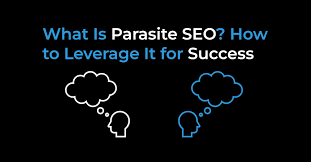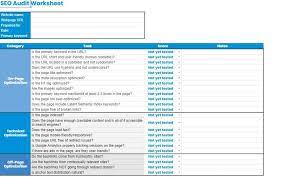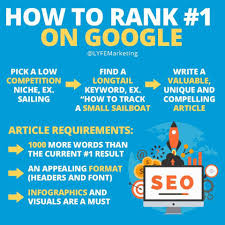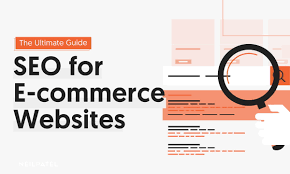Unleashing the Power of Parasite SEO for Enhanced Online Visibility
Exploring Parasite SEO: A Powerful Strategy for Online Visibility
Parasite SEO, also known as “piggybacking” or “satellite” SEO, is a strategy that involves leveraging high-authority websites to boost your own online visibility. While the term “parasite” may sound negative, in the realm of search engine optimisation, it can be a highly effective and legitimate technique.
How Does Parasite SEO Work?
The concept of parasite SEO revolves around creating content on third-party websites that already have strong domain authority and high search engine rankings. By strategically placing your content on these platforms and optimising it for relevant keywords, you can capitalise on their existing traffic and visibility to drive more visitors to your own website.
The Benefits of Parasite SEO
One of the key advantages of parasite SEO is its ability to quickly improve your search engine rankings without having to build up your own website’s authority from scratch. By piggybacking on established platforms, you can see results in a shorter timeframe and attract targeted traffic to your site.
Best Practices for Implementing Parasite SEO
- Choose the Right Platforms: Select reputable websites that are relevant to your industry and have high domain authority.
- Create High-Quality Content: Ensure that your content is valuable, engaging, and optimised for relevant keywords.
- Optimise Your Links: Include links back to your website strategically within the content to drive traffic and improve your own site’s authority.
- Maintain Consistency: Regularly update and monitor your parasite pages to ensure they continue to perform well in search results.
In Conclusion
Parasite SEO can be a powerful addition to your digital marketing strategy when implemented correctly. By harnessing the authority of established websites, you can enhance your online visibility, attract more visitors, and ultimately drive growth for your business. Remember to follow best practices and monitor performance closely to maximise the benefits of this innovative approach.
Maximising Online Visibility: 8 Advantages of Parasite SEO
- Leverages high-authority websites to boost online visibility
- Can quickly improve search engine rankings
- Allows for targeted traffic generation
- Does not require building up website authority from scratch
- Cost-effective strategy for enhancing online presence
- Provides access to existing audience of established platforms
- Helps in driving more visitors to your own website
- Can be a valuable addition to digital marketing arsenal
7 Drawbacks of Parasite SEO: Risks and Challenges for Your Brand
- Risk of Dependency
- Limited Control
- Brand Dilution
- Competitive Disadvantage
- Potential for Penalties
- Inconsistent Performance
- Difficulty in Tracking ROI
Leverages high-authority websites to boost online visibility
By utilising parasite SEO, businesses can harness the power of high-authority websites to enhance their online visibility and reach a wider audience. This strategy allows them to piggyback on the established reputation and credibility of well-known platforms, effectively increasing their own brand visibility and attracting more traffic to their website. Leveraging these authoritative websites provides a valuable opportunity for businesses to amplify their online presence and connect with potential customers in a more targeted and effective manner.
Can quickly improve search engine rankings
One notable advantage of Parasite SEO is its ability to swiftly enhance search engine rankings. By strategically leveraging high-authority third-party websites, businesses can see a rapid improvement in their online visibility without the time-consuming process of building up their own website’s authority from scratch. This efficient approach allows for a quicker boost in search engine rankings, attracting more targeted traffic and potential customers to the website in a shorter timeframe.
Allows for targeted traffic generation
Parasite SEO offers the distinct advantage of enabling targeted traffic generation to your website. By strategically placing optimised content on high-authority platforms relevant to your industry, you can attract users who are actively seeking the products or services you offer. This targeted approach not only drives quality traffic to your site but also increases the likelihood of converting visitors into customers. Parasite SEO’s ability to draw in specific audiences interested in your offerings can lead to higher engagement, improved conversion rates, and ultimately, greater success in your online marketing efforts.
Does not require building up website authority from scratch
One significant advantage of Parasite SEO is that it eliminates the need to build up website authority from scratch. By leveraging established platforms with high domain authority, businesses can quickly improve their search engine rankings and attract targeted traffic without investing extensive time and resources into developing their own site’s authority. This streamlined approach allows for faster results and increased online visibility, making Parasite SEO a valuable strategy for businesses looking to enhance their digital presence efficiently.
Cost-effective strategy for enhancing online presence
Parasite SEO offers a cost-effective strategy for enhancing online presence by allowing businesses to leverage the authority of established websites without the need for significant investment in building their own domain authority from scratch. By strategically placing content on high-authority platforms, businesses can effectively reach a wider audience, drive targeted traffic to their website, and improve search engine rankings without incurring substantial costs associated with traditional SEO methods. This approach provides an efficient and budget-friendly way for businesses to boost their online visibility and attract potential customers.
Provides access to existing audience of established platforms
Parasite SEO offers the significant advantage of providing access to the pre-existing audience of well-established platforms. By strategically leveraging these high-authority websites, businesses can tap into a ready-made pool of users who are already engaging with the content on those platforms. This direct access to a targeted audience allows for increased visibility, brand exposure, and the potential to drive valuable traffic back to their own website. Ultimately, this pro of parasite SEO can result in accelerated growth and enhanced online presence for businesses looking to expand their reach in a competitive digital landscape.
Helps in driving more visitors to your own website
Leveraging parasite SEO can significantly enhance your online visibility by tapping into the existing traffic of high-authority websites, ultimately driving a greater number of visitors to your own site. This strategy allows you to reach a broader audience and attract targeted traffic without the need to solely rely on building up your website’s authority from scratch. By strategically placing content on established platforms and optimising it for relevant keywords, you can effectively increase your website’s exposure and draw in more potential customers or clients.
Can be a valuable addition to digital marketing arsenal
In the realm of digital marketing, one notable advantage of parasite SEO is its potential to serve as a valuable addition to an organisation’s marketing arsenal. By strategically utilising high-authority platforms to amplify online visibility and drive targeted traffic, parasite SEO can complement existing marketing efforts and enhance overall brand exposure. This approach offers businesses a unique opportunity to expand their reach, attract new audiences, and ultimately strengthen their online presence in a competitive digital landscape.
Risk of Dependency
Relying too heavily on third-party platforms for traffic through Parasite SEO can pose a significant risk of dependency for your website. Depending solely on these platforms leaves your online presence vulnerable to sudden changes in their algorithms or policies, which could result in a drastic decrease in traffic to your site. It is essential to diversify your SEO strategy and not solely rely on external sources to maintain a stable and sustainable online visibility strategy.
Limited Control
Having limited control over the hosting platform is a significant drawback of parasite SEO. This lack of control can impact how your content is presented and its overall performance. Since you are relying on third-party websites for visibility, any changes or updates made to the hosting platform could potentially affect the way your content is displayed to users. This limitation highlights the importance of carefully selecting reputable platforms and regularly monitoring your content to ensure it aligns with your branding and marketing goals despite the constraints of external hosting environments.
Brand Dilution
Associating your brand with multiple platforms through parasite SEO can lead to brand dilution, diminishing the clarity and strength of your brand identity. By spreading your brand across various third-party websites, you risk confusing consumers and weakening brand recognition. Inconsistent messaging or varying presentation styles on different platforms may create a fragmented perception of your brand, making it harder for customers to form a cohesive understanding of who you are and what you offer. Maintaining a strong, unified brand presence is crucial for building trust and loyalty among your target audience.
Competitive Disadvantage
Competing for visibility on popular platforms through Parasite SEO can present a significant challenge due to the high level of competition from other users. With numerous individuals and businesses vying for attention on these established websites, standing out and gaining prominence can be an uphill battle. This competitive disadvantage may require a more strategic approach and diligent effort to ensure that your content rises above the competition and effectively drives traffic to your own website.
Potential for Penalties
Overusing parasite SEO tactics or engaging in spammy practices can pose a significant risk of penalties from search engines. Search engines like Google have strict guidelines in place to ensure fair and quality search results for users. If a website is found to be manipulating rankings through excessive use of parasite SEO or resorting to spammy techniques, it can face penalties such as being deindexed or receiving lower rankings. It is essential for businesses to approach parasite SEO with caution and adhere to ethical practices to avoid detrimental consequences that could harm their online presence in the long run.
Inconsistent Performance
One significant drawback of parasite SEO is the inconsistent performance it may exhibit. The effectiveness of parasite pages can vary unpredictably due to alterations made by the hosting platform or shifts in search engine algorithms. These fluctuations in performance can make it challenging to maintain stable and reliable results over time, potentially impacting the overall success of the SEO strategy implemented through parasite pages.
Difficulty in Tracking ROI
Difficulty in tracking ROI is a significant con of parasite SEO. Unlike traditional SEO strategies where the impact on website performance and conversions can be more directly measured, assessing the effectiveness of parasite SEO efforts can be challenging. Due to the distributed nature of content across various platforms, determining the exact contribution of each parasite page to overall ROI becomes complex. This lack of clear visibility into ROI metrics may hinder businesses in accurately evaluating the success and efficiency of their parasite SEO campaigns.









